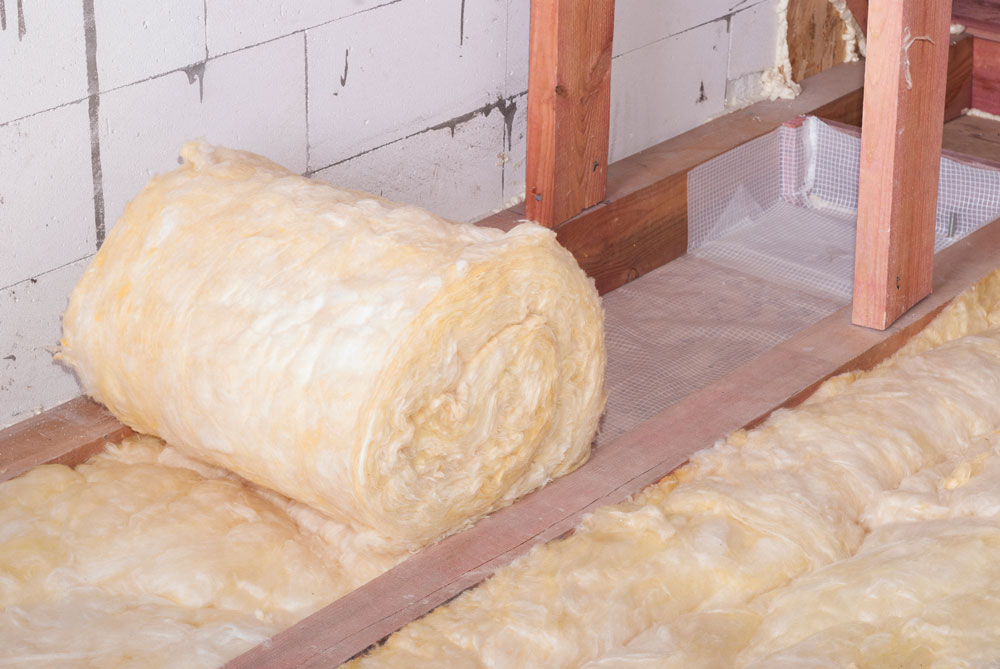What Is Loft Insulation Made Of?
 CONTENTS
CONTENTS
Lost insulation can minimise heat loss from your property, keeping your home warm and your energy costs low. With so many different materials to choose from, it can be hard to know which kind is right for you and your specific needs. It is recommended you bring in loft insulation installers to pinpoint the best loft insulation for your project.
We have thermal insulation engineers stationed across the UK who can replace and install insulation in your loft. They are available 365 days a year, including out of hours, to carry out our loft insulation installation services.
Keep reading to learn more about the best loft insulation materials and what they are made of.
Blanket insulation
The main component of blanket insulation is fibreglass which consists of extremely fine glass fibres. This material has been widely used because it is lightweight yet durable. The effectiveness of this type of insulation comes from its ability to reduce heat transfer through convection and radiation. By trapping air within its fibres, it slows down the movement of warm air out of your home
Fibreglass is one of the most popular types of loft insulation. The main reason is that blanket insulation is a cheaper alternative to more expensive types of insulation like foam boards or spray foam.
It is relatively easy to install, as well, although professional installation is recommended to ensure maximum efficiency. Fibreglass also offers sound dampening as it can reduce the transmission of noise from outside or other rooms in the house.
The main issue with fibreglass, however, is that it is dangerous to be exposed to. The tiny glass particles can irritate skin and respiratory systems unless you are are wearing protective gear like gloves and masks while you handle it.
Fibreglass needs regular checks over time for signs of settling or damage which could decrease its performance, too.
Loose-fill Insulation
This kind of insulation consists of small particles that are blown into attic spaces or wall cavities. The materials commonly used for loose-fill insulation include eco-friendly cellulose, fibreglass, and mineral wool.
Cellulose is made from recycled paper items and is then infused with chemicals to bolster its resistance against fire. Mineral wool, on the other hand, is produced from basalt or industrial waste.
Each material has unique characteristics making it suitable for different applications. For instance, cellulose is known for its soundproofing capabilities whereas fibreglass is best in areas prone to moisture because of its non-absorbent nature.
Loose-fill insulation is popular because it navigates effortlessly through awkward spaces and obstacles. Its ability to fill gaps thoroughly helps eliminate cold spots effectively which enhances overall comfort within a building structure. Other benefits include:
- Easy installation: it is especially beneficial in retrofitting projects where minimal disturbance is preferred.
- Cost-effectiveness: it is more affordable compared with other types of insulation because materials can be sourced locally, thus reducing transportation costs.
- Sustainability: many options such as cellulose use recycled content, therefore reducing landfill waste.
The main issue with loose-fill insulation, however, is that it may need to be topped up regularly to prevent settling which can compromise its effectiveness. Another problem is air leakage if the insulation is not properly sealed which could result in higher utility bills.
It should be noted that loose-fill insulation is often confused with blown-in insulation. They are made of the same materials (cellulose, fibreglass, and mineral wool) and work the same way. The only difference is the installation process: blown-fibre is installed by using a machine that blows in the insulation whereas loose-fill is poured into the space.
Sheet insulation
This is made of rigid panels that are each crafted from distinct substances boasting their own thermal retention capabilities and uses. The primary materials used for sheet insulation include polystyrene, polyisocyanurate (PIR), and phenolic foam.
Polystyrene panels, known for their ability to block heat and resist water, are ideal choices for locations that frequently deal with wet conditions. Polyisocyanurate panels also boast high R-values per inch as well as superior flame retardance. Phenolic foam offers superior fire resistance as well as exceptional thermal efficiency, too, but tends to be more expensive than its counterparts.
The pros of sheet insulation
- Durability: sheet insulation is robust and can withstand physical impact better than some other forms, such as blanket or loose-fill options.
- Easy installation: the rigidity of these panels allows for straightforward cutting so it can fit any space perfectly without significant gaps that could reduce efficacy.
- Mould resistance: materials like polystyrene do not absorb water easily and resist mould growth effectively over time.
The cons of sheet insulation
- Cost: high-quality sheet materials like PIR or phenolic foams come at a premium compared to traditional fibreglass batts.
- Limited flexibility: while their rigidity aids installation precision, it also means they may not be ideal for spaces with irregular shapes or obstructions.
- Safety concerns: certain types require additional treatments or barriers to meet building codes.
Contact us today
To schedule your free site survey for our loft insulation installation services, get in touch with our team on 020 3376 4802 or send an email to [email protected].
Our thermal insulation engineers have over 10 years of experience installing insulation in a range of domestic and commercial properties. They can help make your home more energy efficient, no matter how unique your requirements. You can learn more about how loft insulation works here.

Speak with me today,
I’m here to help
By asking you a few questions either via phone or email I can immediately provide a realistic estimation of the cost.

Why choose us?
- Cater to a wide variety of cleaning situations
- Nationwide coverage, available 24/7
- Cater to commercial and domestic clients
- Free survey provided prior to quotation
- Emergency response team
- Offer a bespoke service designed to suit all your needs
- All technicians hold professional health and safety qualifications, including BICSc, IOSH, Dewpoint Professional & Safe Contractor
We’re fully accredited
We place best practise, professional expertise and health and safety at the core of our business. We’re fully compliant with all legal obligations. You can view a list of our accreditations below, or visit our Health & Safety page for more information.











-RGB-small.1707319151.jpg)




















